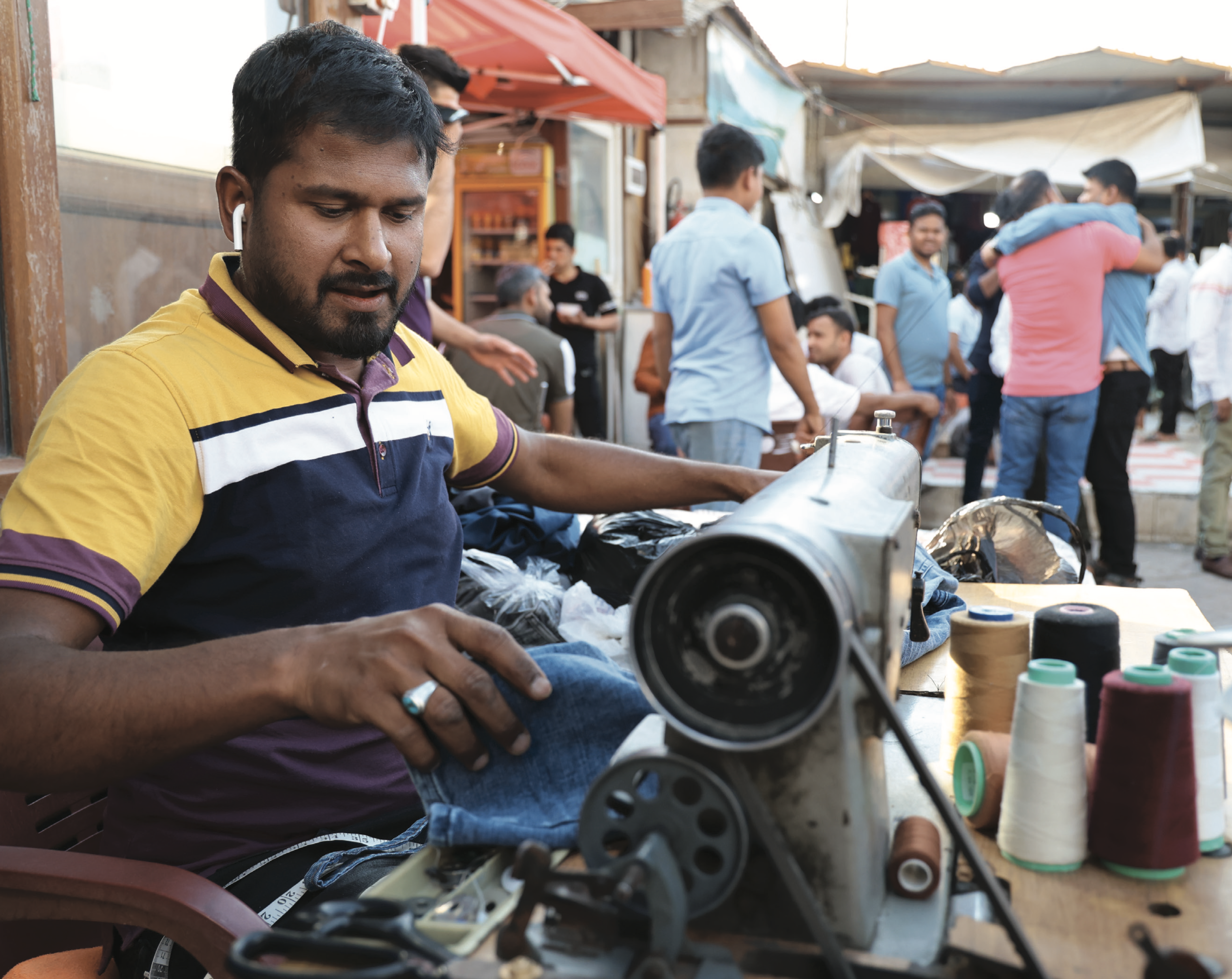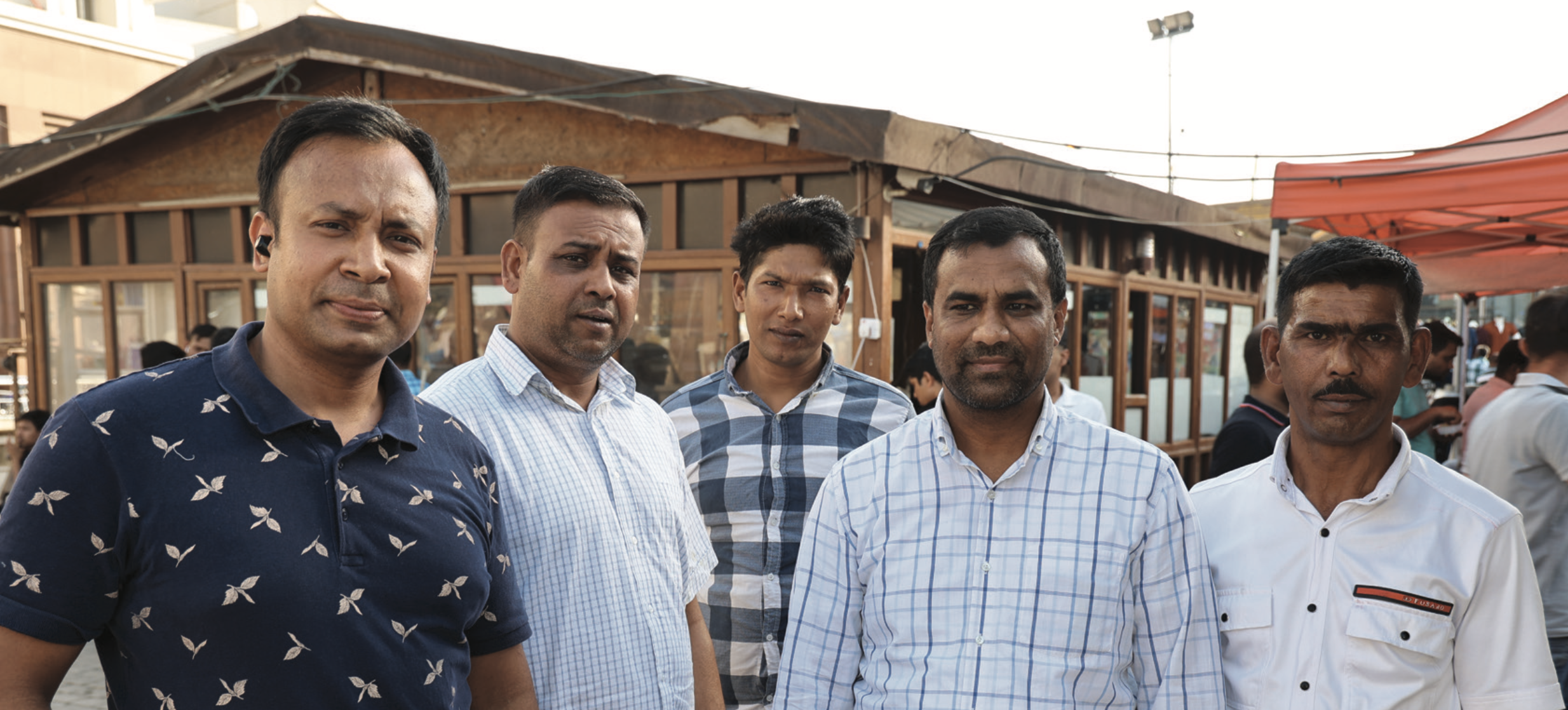Every Friday, a unique and vibrant market comes to life in the heart of Erbil, the capital of Iraqi Kurdistan. This bustling market near the Baghi Shar Garden is not your typical bazaar. It is the Bangladeshi market, where Erbil's Bengali community gathers to connect, shop, and enjoy the flavors of its homeland.
Habib Abdulrahman, a 39-year-old Bangladeshi resident who has called Erbil home for several years, passionately explains the significance of this market beyond its commercial value. "It is more than just a market for us to buy vegetables and food; it is our meeting place," Habib says with a warm smile.
Fish, spices, and more
With approximately 5,000 Bengali residents in Erbil, the weekly market serves as a hub for the community to greet one another, engage in conversations, inquire about each other’s well-being, and stay updated on news from Bangladesh.
Habib points out the unique vegetables, fish, and spices that are only found in Bangladesh and other South-east Asian countries as he walks through the market. “This is Lalshak (red amaranth), which is traditionally served with fish. Mula (white radish), Kasa Morris (chili), and Ilish fish, the most popular fish in Bangladesh and often referred to as the ‘King of Fishes’, are here,” he enthusiastically shares. “Food is synonymous with fish and vegetables for the Bengali community, and these familiar flavors evoke a sense of home,” he adds.
Most of the fish sold in the market is flown in from Bangladesh.
Among the vendors, one stall attracts a steady stream of Bangladeshi customers. Shahab Rajab, 27, specializes in selling Bangla Pan Betel leaves, which are chewed for an extended period until the mouth turns orange. “Pan Betel leaves are delicate and beneficial to digestion and dental health. They strengthen teeth. Every day, I consume four to five leaves,” he explains.

A place for cultural exchange
The Bangladeshi Friday market, founded in 2011 by the Bengali community, began as a place for Bangladeshis to shop and socialize. It has, however, attracted visitors from other communities over time, including Indians, Filipinos, Nepalese, and a few curious Kurds who have developed a taste for Bangladeshi vegetables, spices, and cuisine.
Nonetheless, Kurdish visitors remain a minority at the market, often driven by curiosity rather than regular shopping.
The Bangladeshi market stands as a testament to the cultural exchange taking place in Erbil, where diverse communities can explore and appreciate each other's culinary traditions.
Several food stalls across from the Bangladeshi grocery and fish market serve delectable dishes such as ilish curry fish fried in oil and Sambusa, as well as a variety of sweets popular not only in Bangladesh but also in India. Pantua, a milk, semolina, ghee, khoya, and sugar delicacy, and Langcha, a fried flour and khoya sweet dipped in sugar syrup, are both available to visitors.

Farming Bangladeshi ingredients in Kurdistan
To ensure a steady supply of traditional ingredients, the Bangladeshi community has taken up farming in the Kurdistan region, importing seeds from Bangladesh and cultivating their own vegetables.
Kurdistan Chronicle visited one such farm in Arabkand, a village on the outskirts of Erbil.
Ibrahim Farouq, a local farmer of 26 years, took the bold step of leasing two hectares of his land to a Bangladeshi group, allowing them to grow their own vegetables. Initially hesitant due to cultural differences, Ibrahim now speaks highly of his decision, praising his Bangladeshi tenants' hard work, calmness, and constant smiles.
Ibrahim's family has grown fond of the distinct flavors of Bangladeshi groceries. They particularly enjoy the rich flavor of Bangladeshi eggplants, though the chili peppers are a little too spicy for their tastes.
During the visit, it was clear that the Bangladeshi farmers had developed a well-organized routine. They spent their afternoons tending to their bountiful vegetable crops after finishing their blue-collar jobs in the morning. Around ten Bangladeshis were spotted on the farm, each working tirelessly to ensure the success of their agricultural venture.
One of the farmers, Mohammad, spoke with remarkable Kurdish fluency, conveying the farmers’ ambitions to export their produce beyond Erbil. He explained that they not only supply the local market in Erbil but also other major cities such as Baghdad and Sulaymaniyah. These cities, which have large Bangladeshi communities, now enjoy the flavors of their homeland thanks to their efforts.
Qassim Khidhir has 15 years of experience in journalism and media development in Iraq. He has contributed to both local and international media outlets.

